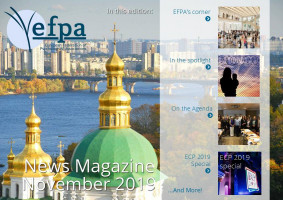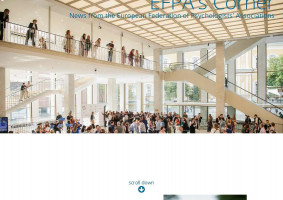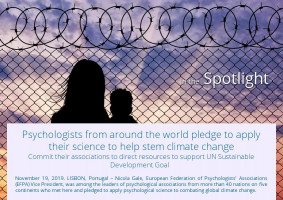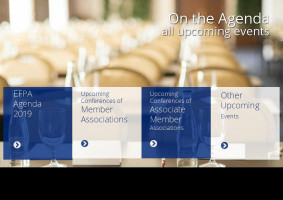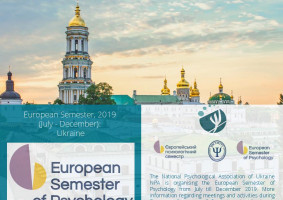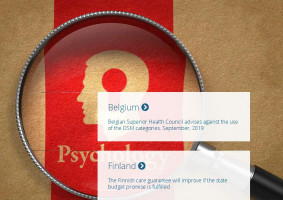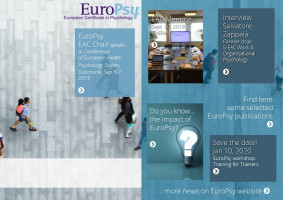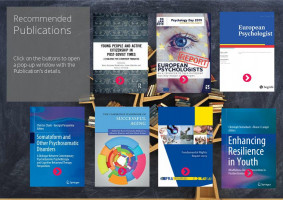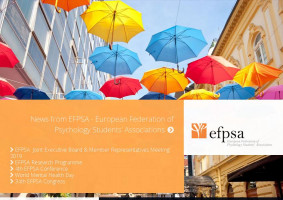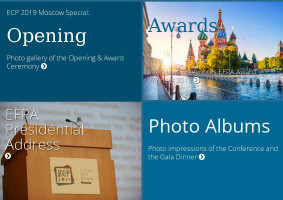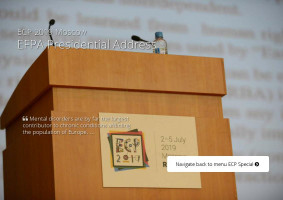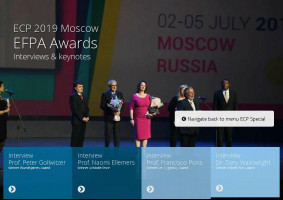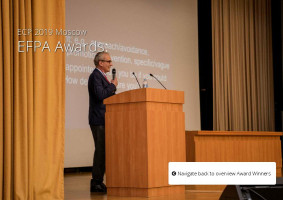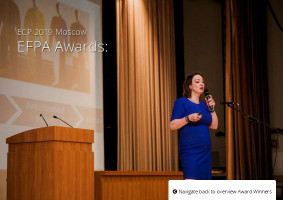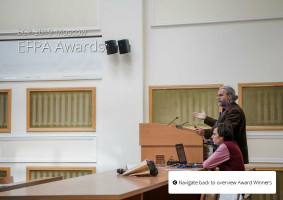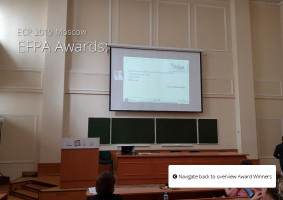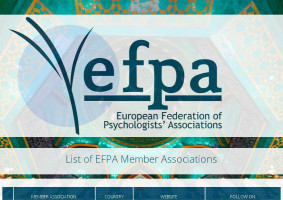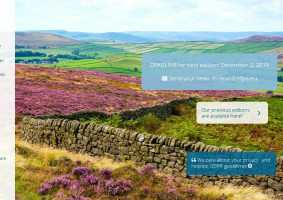Navigate back to overview Award Winners
Interview
EFPA Award winner Tony Wainwright
Interviewed by Ying Wai Cheung (European Federation of Psychology Students' Associations - EFPSA)
Can you tell us a bit more about your background and how you got into psychology?
I grew up in London in a communist family and my parents were passionate about both education, politics and social problems, and it was through them that I became so interested in social issues, and perhaps is reflected in the Robert Roe award. I learned as I grew up about the dangers of even egalitarian ideologies and about the awful crimes that have been committed in the name of communism. This has been one of the reasons for my commitment to and interest in ethics and its relationship to psychology to understand how such things can happen. I also learned from my father in particular about natural history and my first degree was in biology and I grew up with a strong interest in ethology and animal behaviour and for many years have campaigned about the way human activity has led to the disruption of the environment and the climate system.
_w536_h544_1.png)
More about the lecture of Tony Wainwright in pop-up
After my first degree, I changed to experimental psychology and my doctorate was in vision and visual systems in a rocky shore fish – I trained them to find out how well they could discriminate colours. When I was doing my post doc, I became interested in mental health and psychology and began to wonder how people could be incarcerated in mental hospitals for years for no apparent reason. I used to take groups of undergraduate psychology students to the local mental hospital to get to know the people living there and through this became interested in clinical psychology. I did my clinical training and then worked in the National Health Service for the next 30 or so years. I now work in clinical psychology training.
What is the current focus of your research?
I would like to change this question to be about my work, rather than just research. I am not really a researcher, although have had a long-standing interest in research. For most of my career I worked as a clinical psychologist, seeing patients and managing clinical psychology departments in London and Cornwall. My day job is with Exeter University where I teach on the Doctorate in Clinical Psychology Programme as well as some other clinical programmes (see http://cedar.exeter.ac.uk).
I have also worked with the EFPA over the past few years and the focus of this has been ethics, psychology and human rights and prevention – and these themes are reflected in my research interests and teaching. I have tried with ethics to connect it as far as possible with psychological theory and practice as I believe that in psychological science, we have a framework that can explore this field and gain important insights. The field of experimental philosophy also fascinates me as it brings together the methods of social science with the rigorous thinking of philosophy. In practical terms I am working with colleagues in Portugal on the ethics of voluntary euthanasia and physician assisted suicide – neither of which have hitherto been well informed by psychology.
With the British Psychological Society, I have co-authored some guidance on the teaching and assessment of ethical competence and have recently supervised a trainee who worked on this for their thesis. While human rights is not just ethics, it certainly relates to it, and through the Board Human Rights and Psychology I have learned a great deal about what we need to do to protect these hard-won rights, and how many challenges we face. Getting human rights as a key part of psychology education is one of my ambitions and it has been a wonderful experience working with the Board to take forward this aim.
Is there any additional research topic, apart from your current focus, that you would like to tackle?
My main focus currently is psychology, climate change and the environment, and is not likely to change, as it brings together ethics, human rights and prevention - the impact we are having on the environment has all of these elements embedded. I am collaborating with others to combine advocacy with research and teaching on psychology and climate change. This field has been largely the domain of the physical and biological sciences who do an extraordinary job in measuring the impact of greenhouse gas emissions and the loss of biodiversity. I have been really encouraged by the change in public mood about all this, and in particular young people’s activism following the stand taken by Greta Thunberg (Thunberg, 2019). We need to foster and cultivate the new social science of climate change and the environment, that brings to the table all the advances in psychological science ranging from social psychology (my particular interest is in social identity theory (Jetten, Haslam, & Haslam, 2012) to behavioural economics and moral psychology (among many, many others).
How we organise ourselves as professional psychologists in the future will require us to rethink our position on what have been thought of as political in the past. We cannot neglect the way human behaviour is leading to such widespread harm. The Paris agreement provides a way for all professional psychology associations to work with their own policy makers on how to address these problems and it is good to see that we have psychologists working with the Intergovernmental Panel on Climate Change to review all the psychological literature (working group III https://www.ipcc.ch/working-group/wg3/) .
What advice would you give psychology students and young researchers?
I would start by saying what a fascinating field you are in. I never stop being interested in all areas of psychology. Part of the reason for this is that it can touch on all areas of human activity, so really nothing is outside its scope. I also think that there is a lot to be learned by those who work in other fields and I am a fan of people like Richard Feynman (Feynman, Leighton, Hutchings, & Gates, 2018), who sought out experiences outside physics (for example painting and playing the bongos) and one of his breakthroughs (the Feynman diagrams) came from applying an artistic approach to a mathematical problem.
Learn about quantum mechanics and relativity – this can give you some useful perspective! Getting outside your comfort zone, collaborating with others is really important in developing your ideas. Following on from my earlier answers, you will realise that I believe there are some big problems ahead, so whatever your research field or area of study, I would recommend spending some time on learning about climate science and ecological theory. I would also add to this spending some time on studying how financial systems work and how fragile our whole global system is and how we need to work together. Keeping these big picture issues in mind while working on your projects can be really helpful and as a good example you might like to read Peter Mittler's book on his clincal psychology practice and research with people with disabilities and his advocacy for their human rights.
Bibliography
Feynman, R. P., Leighton, R., Hutchings, E., & Gates, B. (2018). "Surely you're joking, Mr. Feynman!": adventures of a curious character: New York: W.W. Norton & Company.
Jetten, J., Haslam, C., & Haslam, S. A. (2012). The social cure: identity, health and well-being. Hove; New York: Psychology Press.
Mittler, P. (2010). Thinking globally acting locally : a personal journey. Central Milton Keynes: AuthorHouse.
Thunberg, G. (2019). No one is too small to make a difference: Penguin, Allen Lane.
